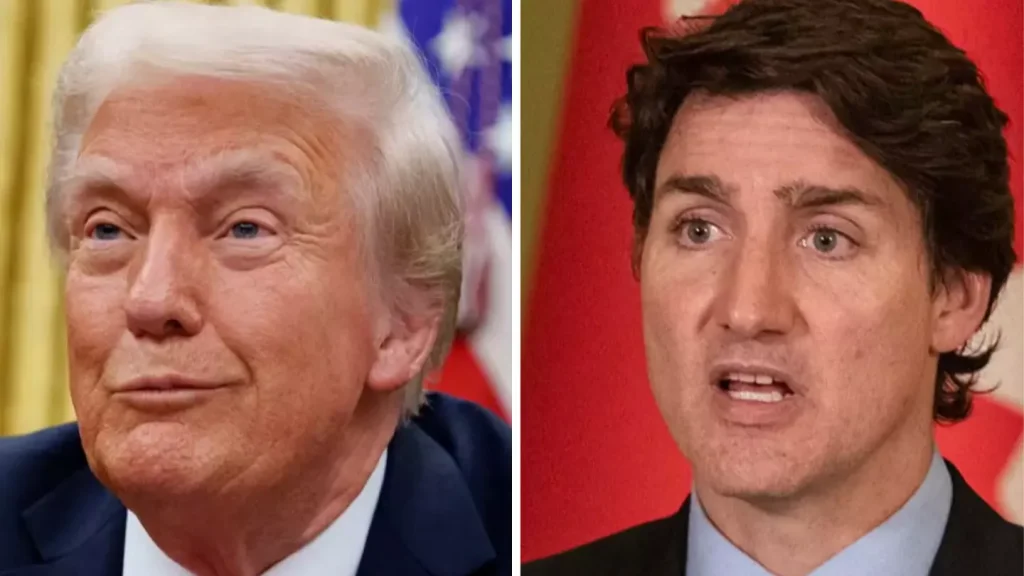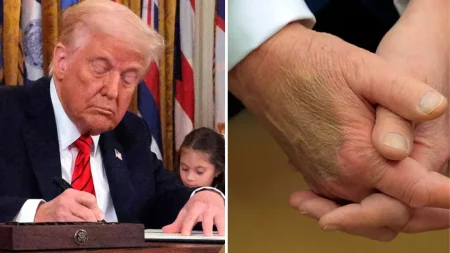Donald Trump and Justin Trudeau are once again at odds, with tensions reaching new heights as a trade dispute between the two nations unfolds.
The conflict, driven by a series of economic decisions, has sparked controversy on both sides of the border, drawing strong reactions from political leaders and economic experts alike.
The latest development began when U.S. President Donald Trump announced sweeping tariffs on Canadian imports. On February 1, 2025, Trump imposed a 25% tariff on all goods from Canada, while energy products faced an additional 10% levy.
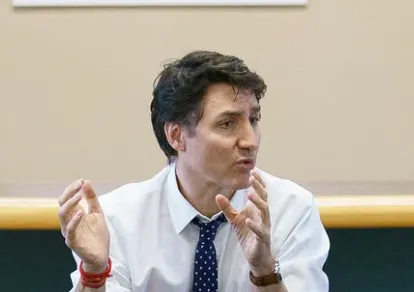
The justification, according to the U.S. administration, was Canada’s failure to curb illegal immigration and the flow of fentanyl into the United States. Trump maintained that these measures were necessary to safeguard American interests and reduce economic disadvantages.
In response, Canadian Prime Minister Justin Trudeau slammed the tariffs as unfair and damaging to both nations. He swiftly retaliated by imposing a 25% tariff on $30 billion worth of U.S. goods, with plans to extend the countermeasures to another $125 billion in the coming weeks.
Trudeau urged Canadians to support domestic industries and brace for economic turbulence as Canada prepared to fight back against what he described as unjust economic aggression.
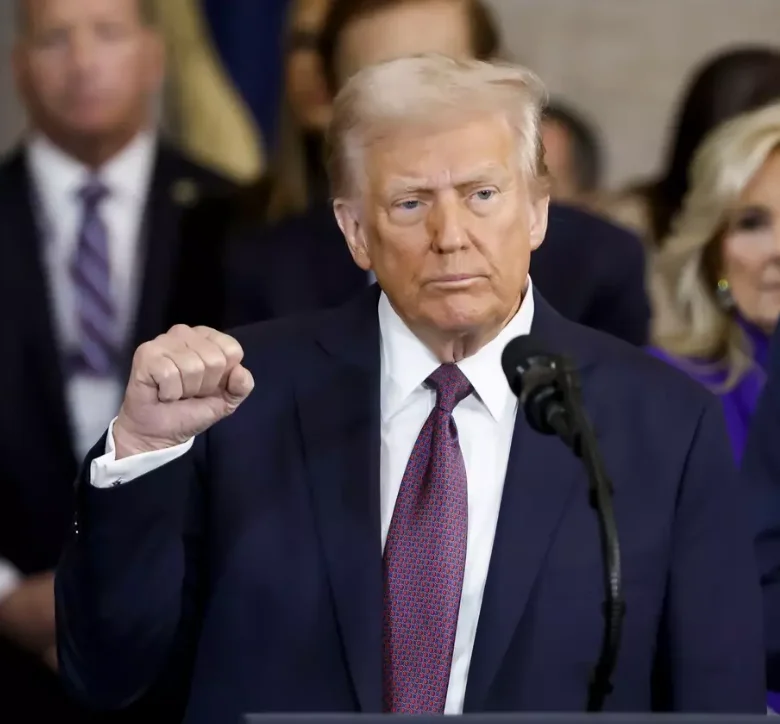
The trade dispute quickly triggered political upheaval within Canada. Ontario Premier Doug Ford took a hardline stance, canceling a major $100 million contract with Starlink to provide internet services to remote communities. He also announced a ban on U.S.
companies bidding on government contracts in Ontario, signaling a broader shift toward economic nationalism. Additionally, Ford threatened to impose a 25% export tax on electricity supplied to U.S. states and hinted at restricting mineral exports to the U.S.
Economists warn that the escalating tariffs could have dire consequences for both economies. Integrated supply chains between the two nations face significant disruption, with rising costs expected for both American and Canadian consumers.
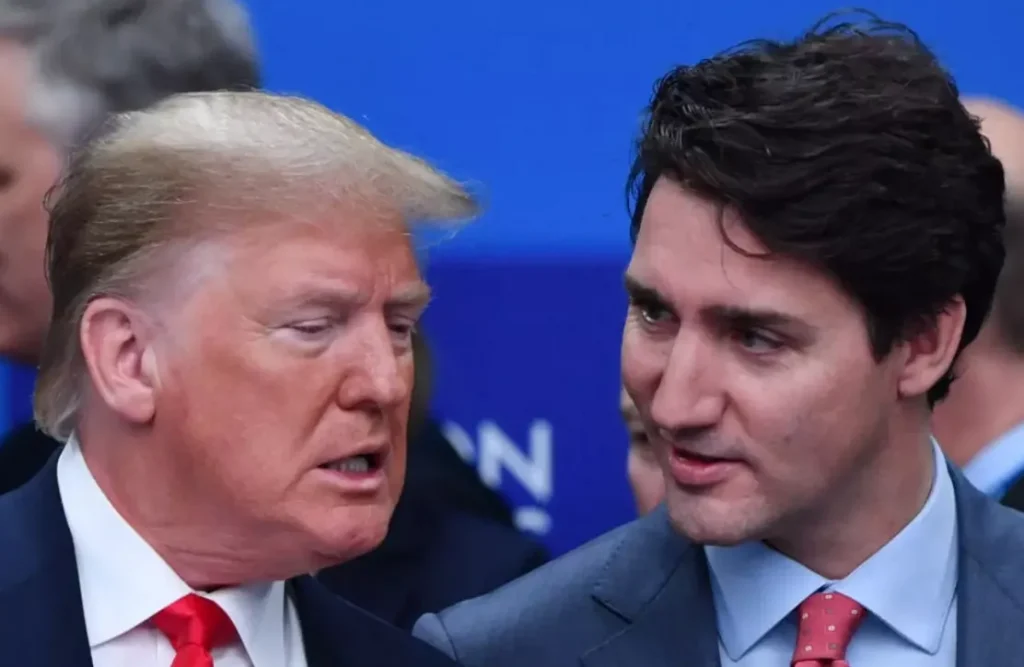
Many industries rely on seamless trade across the border, and the fallout from this dispute could lead to job losses and economic instability on both sides. As tensions escalate, international observers have expressed concern over the potential long-term effects of this trade conflict.
The European Union and China have both urged the U.S. and Canada to resolve the matter diplomatically. The World Trade Organization has also weighed in, emphasizing the importance of maintaining free trade agreements and avoiding economic retaliation that could further destabilize global markets.
The pressure is mounting as both countries dig in their heels and refuse to back down.
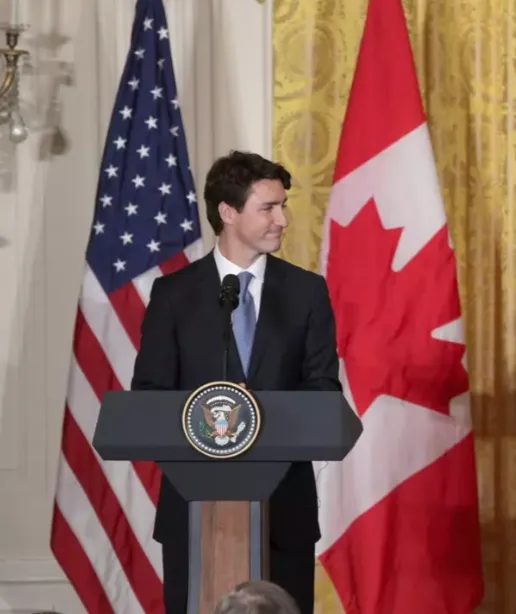
Amidst the economic fallout, an unexpected war of words between Trump and Trudeau has added fuel to the fire. In a move that many saw as undiplomatic, Trump referred to Trudeau as “Governor Trudeau” rather than addressing him as Prime Minister.
He made the remark on his Truth Social platform, writing, “Please explain to Governor Trudeau, of Canada, that when he puts on a retaliatory tariff on the U.S., our reciprocal tariff will immediately increase by a like amount!”
The nickname, implying that Canada is merely an extension of the U.S., has sparked backlash, with many Canadians seeing it as a direct insult to their nation’s sovereignty.
Trudeau wasted no time in firing back, delivering a sharp rebuke during a press conference. “That is never going to happen. We will never be the 51st state. This is a time to hit back hard and to demonstrate that a fight with Canada will have no winners,” he declared.
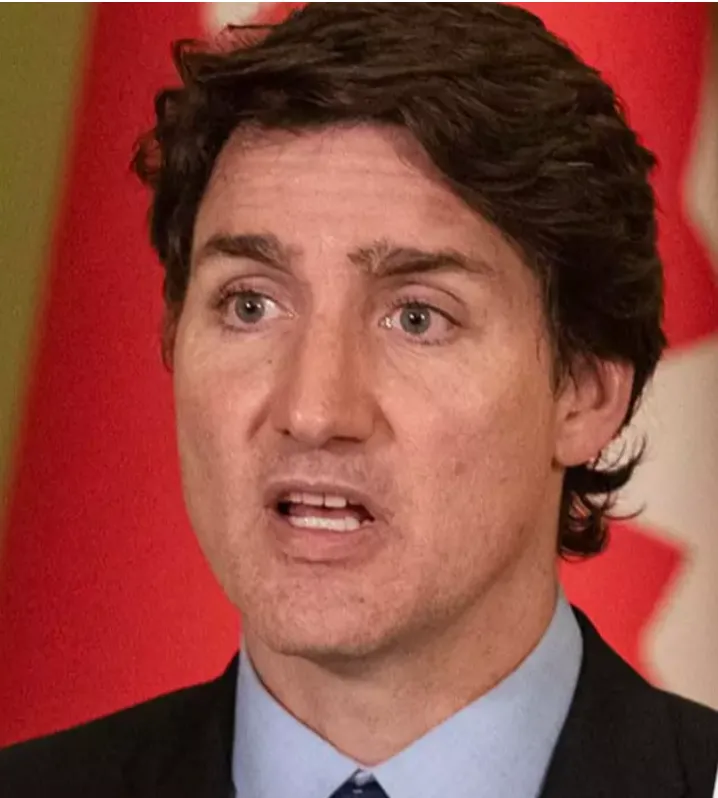
The feud between the two leaders has only intensified, with Trudeau taking a personal approach in his response. “I want to speak directly to one specific American, Donald,” Trudeau stated.
“It’s not in my habit to agree with the Wall Street Journal, but Donald, they point out that even though you’re a very smart guy, this is a very dumb thing to do.”
Trump, on the other hand, has justified his actions by linking Canada to a rise in fentanyl smuggling into the United States. He claimed that “9.8 million Americans” died last year due to fentanyl coming from Canada, a statistic that Trudeau strongly disputed.
“Less than one percent of the fentanyl intercepted at the U.S. border comes from Canada,” the Prime Minister countered. “We have worked relentlessly to address this scourge that affects Canadians and Americans alike.”
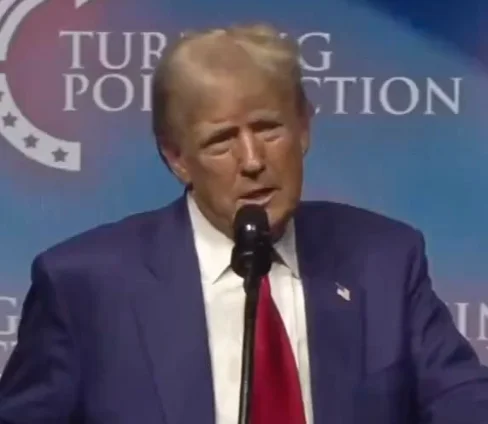
With both leaders refusing to concede, the U.S.-Canada trade war appears far from over. The economic ramifications are already unfolding, but the personal attacks and public clashes between
Trump and Trudeau have added a new dimension to the crisis. As the dispute escalates, all eyes are on how these two powerful leaders will navigate their political standoff in the weeks to come.
Feature Image Credit: (NICHOLAS KAMM)

